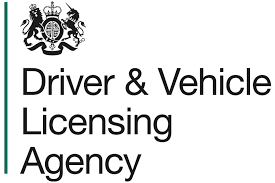Nottingham criminal solicitor Nick Walsh recently represented a client who was being prosecuted for disqualified driving on two separate occasions. Once again the progress of this case illustrates that working within the prescriptive Criminal Procedure Rules can place responsibility for providing evidence firmly with the prosecution.  It is another case that shows the failings of the prosecution to provide this evidence.
It is another case that shows the failings of the prosecution to provide this evidence.
Nick’s client had been disqualified from driving following a conviction for dangerous driving in 2008. The disqualification was subject to the mandatory provision that he remain disqualified from driving until he passed an extended driving test.
He had never taken such a test. The prosecution sought to rely on the Driver and Vehicle Licensing Agency (DVLA) record to prove the fact of the disqualification. There was no issue that Nick’s client was the person who was disqualified or that he was driving on the occasions alleged.
Disqualified Driving
Nick’s client informed him that a search of his driver record held with the DVLA showed that the disqualification had been removed. Nick carried out an identical search. The result was a statement that the disqualification had been removed in 2012.
Pro-active Case Management
At his first appearance our client entered not guilty pleas. Nick completed the case management form and clearly set out that the issue in the case was whether the disqualification had been removed. Nick followed this with secure email contact suggesting the evidence that can be agreed.
Nick went further and repeated the relevant issue in correspondence – the prosecution would have to prove that his client remained disqualified from driving.
The prosecution did not respond to the request to agree evidence. As a result Nick asked that the case be listed for a case management hearing where again the relevant evidential issues whereagain highlighted.
Crown Failed to Secure Admissable Evidence
On the day of trial the prosecution produced an email from the DVLA explaining that the reference to ‘removal’ meant removal from the public record only. The information was not, however, provided in a form that could be placed in evidence before the court.  The prosecution applied to the court for an adjournment. Bearing in mind the history of the case and Nick’s engagement with the case management procedure this application was refused.
The prosecution applied to the court for an adjournment. Bearing in mind the history of the case and Nick’s engagement with the case management procedure this application was refused.
The prosecution had had ample time to secure the evidence in an admissable form. As a result the prosecution offered no evidence and Nick’s client was found not guilty of the two charges of disqualified driving.
Contact Nick Walsh
If you face allegations before the Magistrates’ Court and you wish to instruct and experienced solicitor who is capable of adapting to and taking advantage of the changes in case management then please contact Nick Walsh. He can be telephoned on 0115 9599550 or email him here.


